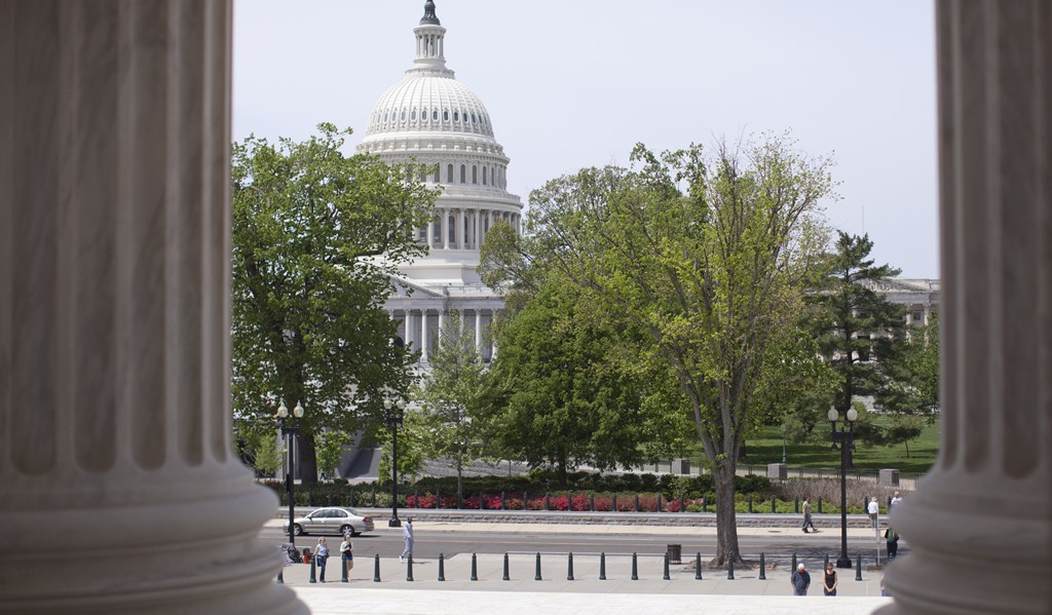Consider the case of Right to Try legislation. These are state laws that allow doctors to prescribe investigational medicines being safely used in clinical trials for patients diagnosed as terminally ill.
You may not have heard about these laws. But you may have heard a lot if a loved one or Facebook friend is facing advanced cancer or ALS (Lou Gehrig's disease) and cannot obtain medicine that might alleviate symptoms or extend life because it has not gained final approval from the Food and Drug Administration.
Right to Try legislation has been championed by the Phoenix-based Goldwater Institute, which has been largely ignoring Congress and concentrating on urging state legislatures to pass such laws. And they've had considerable success. Right to Try laws are now in place in Arizona, Arkansas, Colorado, Indiana, Louisiana, Michigan, Mississippi, Missouri, Montana, North Dakota, South Dakota, Utah, Virginia and Wyoming.
A Right to Try law passed by wide margins in the California Assembly and Senate sits on Gov. Jerry Brown's desk in Sacramento. There is speculation that he will veto it, but there may be enough votes for an override.
As any political junkie could tell you, these include red states, blue states and purple states. Together they contain more than half the nation's population. And Right to Try legislation is being considered in other legislatures as well.
Typically these bills have bipartisan support. Many legislatures have passed them by unanimous or near-unanimous votes.
Recommended
Readers may wonder how state laws could override a federal regulatory agency. In fact the FDA currently has a Compassionate Use policy that allows patients with dire diagnoses access to drugs that have passed Phase I clinical trials and have been judged safe. But applying for this exemption requires 100 physician hours of paperwork and only about 1,000 applications are approved annually.
This is in line with the FDA's longstanding institutional culture. For historical reasons, the FDA is much more averse to approving new drugs and treatments than its counterparts in Europe and other advanced countries. That's contrary to the usual regulatory pattern in which Europe is more stringent than America.
The FDA approval process for new drugs typically takes about 10 to 15 years and costs companies about $800 million from testing in clinical trials to market in pharmacies. Many cancer and ALS patients die or endure excruciating suffering while waiting for approval of alleviating drugs.
"Americans deserve transparency," writes Goldwater Institute president Darcy Olsen in her forthcoming book "Right to Try." "They should not have to beg their government for the right to save their own lives, or stand by while the government makes decisions behind a veil of secrecy, (decisions) that allow some to live and leave others to die."
Olsen notes, "The FDA so far has not challenged Right to Try laws. It would be unwise to do so. If it does, it will lose twice -- once in the court of law, and once in the court of public opinion."
The FDA regulatory regime is based on the idea that a single centralized command-and-control government agency can make optimal decisions that affect everyone because of its unique expertise. That idea, as the success of Right to Try laws in dozens of legislatures demonstrates, is increasingly refuted by experience.
It has also been refuted by the regulators themselves. Under pressure, they bent rules in the 1980s and 1990s to allow drug access to patients with AIDS, then a fatal diagnosis. More recently, under the harsh light of international publicity, the FDA allowed a physician who contracted Ebola in Liberia to take a drug that had never even been tested on human beings.
So far as I know, there has been no serious backlash against these decisions. The logic of allowing those who face terminal illnesses and irreversible physical deterioration to gain access to existing and tested drugs seems to most people irrefutable.
The striking and bipartisan success of Right to Try laws suggests that Americans have lost confidence in the notion that centralized regulators have unique expertise and can determine what is best for everyone. This is a major policy reform, and one that has come from outside Washington.

























Join the conversation as a VIP Member